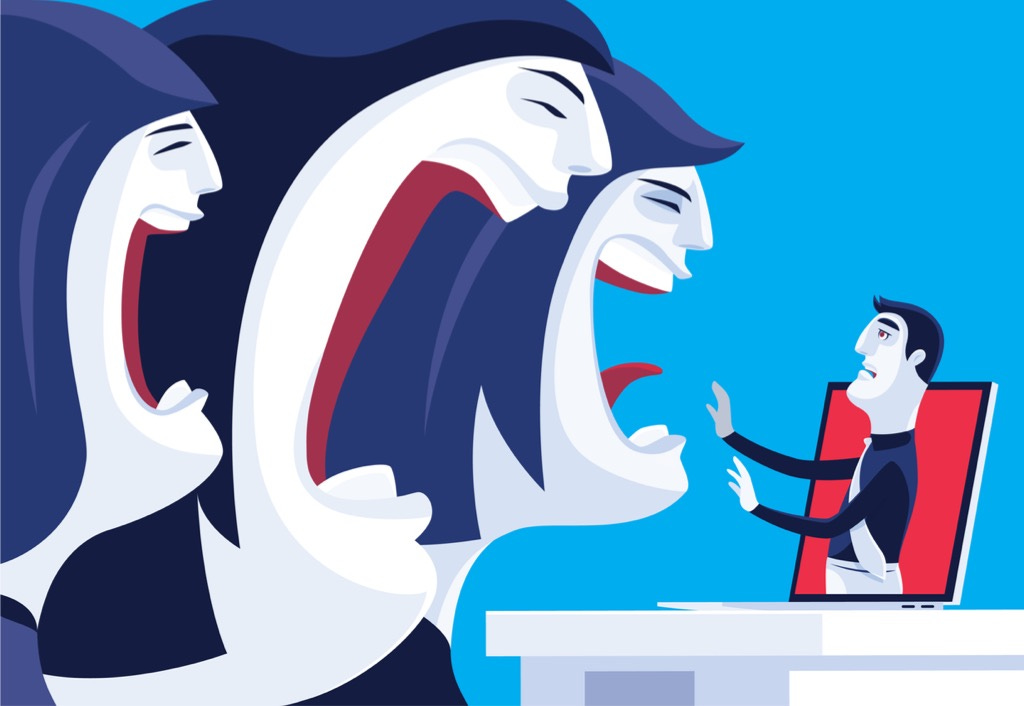New York State just legalized marijuana—or “marihuana” as it is styled in state code—and in response I wrote a short piece in the New York Post last week, discussing some of the potential negative consequences of pot liberalization.
A key consideration, I noted, is that marijuana has been proven to be very bad for people with serious mental illness. Individuals who are schizophrenic or have bipolar disorder who are not being treated—and smoking marijuana is by definition a form of not being treated—have a much higher tendency to lapse into psychoses and commit violence against other people or themselves. New York City is currently beset by thousands of people with untreated mental illness roaming the streets, not infrequently attacking people. Several high-profile mass murders of homeless people by homeless people in the last few years have been connected with use of the drug.
I made some other points about potential roadblocks in society’s path toward the pot-scented utopia that legalization advocates have promised us for decades. For instance, the bountiful tax revenue we are supposed to collect depends on an orderly and regulated market, but if existing growers and dealers can sell their stock in the old, untaxed, and cheaper manner, then they will undermine the collection of taxes. Ironically, we will have to continue the drug war against unregulated marijuana, but this time on behalf of the legal operators.
And so on. The op-Ed was mild and even jocular, recognizing that legalization is fait accompli. The response on social media, on the other hand, was more outraged and suffused with self-righteousness than anything I have ever received before—and I regularly write intentionally provocative items. I was accused, serially, of racism, of holding a fortune in pharmaceutical stocks, of denying science, simultaneously of being a Boomer and of living in my parents’ basement, of being a nerd, of being stupid, and—this was the primary sin—of being angry.
“Why are you so angry?” “U mad, bruh?” “Who hurt you?” etc etc. The implication was that, based on my post hoc chin-scratching about the wisdom of legalizing pot, I am a seething, incipient mass shooter with the personal style of the Michael Douglas character in Falling Down. Perhaps unadvisedly, but with the stakes so utterly inconsequential, I responded to some of my Twitter interlocutors, asking them to expand on their objections to my argument. Without fail, I was accused of being angry, getting mad, being irrational, etc.
It occurred to me that, to the left, being angry is the defining and in many ways the worst and least forgivable characteristic of the right. Right-wingers are drunk on rage at their own failure to prosper in a diverse nation, at their weak physicality, at their sexual inadequacy, at their inability to comprehend scientific fact, at their general mediocrity, and they express this rage by lashing out at the most vulnerable members of society. The right is consumed by anger and hate, and all of its policy positions are merely fig leaves for impotent rage.
But at the same time, the people who seem the most angry are the people on the left. It is they who take to the streets and burn down whole city blocks. It is they who talk passionately and gleefully about how great it is to punch Nazis in the face—“Nazi” meaning whoever annoys them. It is their political officials who praise riots and demand they continue, and who refuse to condemn acts of outright violence. It is their intellectuals who explain that destruction of property by arson and attacks on the police are not violence, but that words are violence and—somehow—so is silence, if expressed by the wrong people.
Presumably following some deep psychological law of denial, the left projects all of its rage onto the right and insists to itself that its own defining characteristic—its greatest virtue—is kindness. Che Guevara personally executed hundreds of people but is famous and adored by his acolytes for saying, “the true revolutionary is guided by strong feelings of love.” This describes perfectly how the typical leftist in America views himself today, and many BLM chants and sayings speak similarly about “love.”
It is instructive for us to consider how the left conceives of itself. This insistence on its own foundation of kindness and love is not only laughably false, but may be a spot of weakness we can exploit in the ongoing civil war.
Seth Barron (@SethBarronNYC) is managing editor of The American Mind.





"The response on social media, on the other hand, was more outraged and suffused with self-righteousness than anything I have ever received before—and I regularly write intentionally provocative items."
I think the key term there is "social media." Social media (needless to say) is not an accurate reflection of anything. The flak could be coming from bots, from trolls, from crazy people, from children, from tweeters for hire--you name it. I pray for the day when comments on social media will be accorded the same weight as crank phone calls before the days of caller ID.
How many mass shooters had smoked pot within a year of their crimes? Or using daily? Going to bet most of them. Probably in combo with other drugs.
The legal sale of pot kind of looks like opioids. Ramp up the THC levels to gain a forever customer. Then like crimes, have everyone else who doesn’t use pay for damages. Forever.
Not sure we have a “Drug War”. We go to war for more drugs (Afghanistan). We enable evil in Mexico (which could be stopped). We romanticize drug use. Not sure any war is being fought.
Kids and young adults under 30 or so should never do drugs. Creates psychos.
Love does strange things. The song “El Paso” by Marty Robbins comes to mind.
Enabling drug use is not love. It’s the opposite its just abuse. More drugs to people who live in misery is not love.
Going to go with Che just loved himself and knew how to work people.
There’s a crying Republican that loves him some pot...Starts with a B. What a hero.........